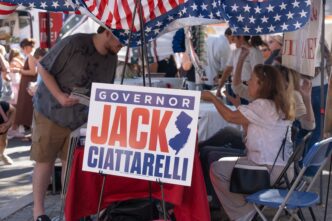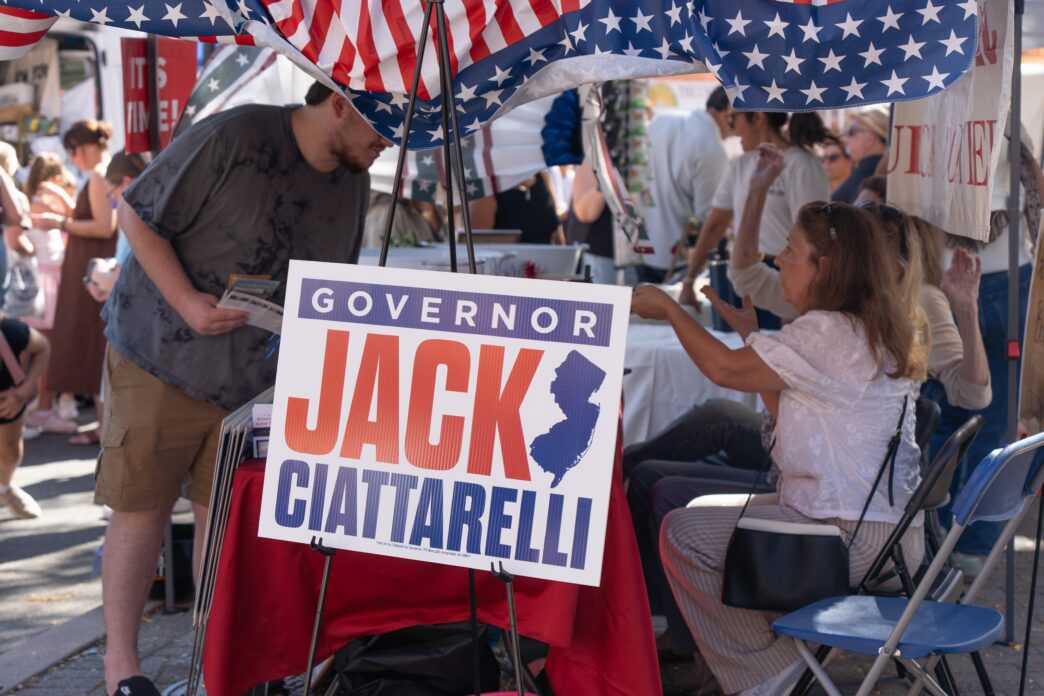Executive Summary
- Gubernatorial elections in New Jersey and Virginia on November 4, 2025, will serve as the first significant public assessment of President Donald Trump’s second term and an early indicator of his enduring political influence.
- The New Jersey gubernatorial contest is a key bellwether, testing how Democratic nominee Mikie Sherrill links her opponent to President Trump, and how Republican Jack Ciattarelli balances appealing to Trump’s base with attracting crossover voters.
- The election outcomes will provide crucial electoral intelligence for both parties, assessing the Democratic Party’s ability to unify and the Republican Party’s capacity to transfer President Trump’s charisma and maintain his base’s participation for future midterm strategies.
The Story So Far
- The upcoming gubernatorial elections in New Jersey and Virginia on November 4, 2025, are widely viewed as the first significant public assessment of President Trump’s second term, serving as a critical early indicator of his enduring political influence and the broader national political landscape ahead of future midterm elections. These races will test the Democratic Party’s ability to coalesce a counterattack and gauge voter sentiment against Trump, while also providing insights into the transferability of his charisma and base participation when he is not on the ballot, particularly in key bellwether states like New Jersey.
Why This Matters
- The gubernatorial elections in New Jersey and Virginia serve as a crucial early barometer for President Donald Trump’s second term, offering the first significant public assessment of his influence and the broader political landscape. These races will provide vital “electoral intelligence” by testing both the Democratic Party’s ability to unify its base against Trump and the Republican Party’s capacity to translate his appeal into votes without him on the ballot, ultimately shaping future campaign strategies and influencing the remainder of his presidency and the 2028 election.
Who Thinks What?
- Democrats view these gubernatorial elections as a critical opportunity to launch a counterattack against President Trump, gauge voter sentiment regarding his presidency, and potentially influence the ongoing government shutdown, with candidates like Mikie Sherrill actively linking opponents to Trump and Former President Barack Obama criticizing Republican policies.
- Republicans and President Trump’s supporters aim to energize Trump’s base while appealing to crossover voters, with candidates like Jack Ciattarelli defending President Trump’s policy achievements. President Trump’s aides are expected to downplay any disappointing results, attributing them to specific candidate performances or past election trends, relying on Trump’s history of political resilience.
- Political analysts and observers consider these elections an early and significant assessment of President Trump’s enduring influence and the broader political landscape, testing whether his charisma and base participation can transfer to other candidates. They will also assess the Democratic Party’s ability to unify its base and the sustainability of Trump’s gains among Black and Hispanic voters without him at the top of the ticket.
Voters in New Jersey and Virginia are set to cast ballots in gubernatorial elections on Tuesday, November 4, 2025, providing the first significant public assessment of President Donald Trump’s second term. These closely watched races, alongside a New York mayor’s race and a redistricting initiative in California, are emerging as an early indicator of the political landscape and the enduring strength of Trump’s influence ahead of future midterm elections.
Early Barometer for Trump’s Influence
The elections are seen as a critical test for both Republicans and Democrats. For Democrats, they represent an opportunity to coalesce a counterattack against President Trump and gauge voter sentiment. Analysts suggest that strong Democratic wins, driven by discontent with the Trump presidency, could send a warning to Republicans and potentially influence the ongoing government shutdown.
However, the analysis also notes that Trump has a history of defying expectations and surprising pollsters. His ability to maintain support despite a sour national mood could further underscore his political resilience, even if these are off-year elections.
New Jersey Race: A Key Bellwether
The gubernatorial contest in New Jersey is highlighted as potentially the most telling race. Unlike Virginia, where the Democratic candidate Abigail Spanberger focused on affordability, New Jersey Democratic nominee Mikie Sherrill has placed President Trump closer to the center of her campaign. Sherrill has consistently linked her Republican opponent, Jack Ciattarelli, to Trump, asserting that Ciattarelli would follow Trump’s directives.
Ciattarelli, on the other hand, has attempted a balancing act similar to Virginia Governor Glenn Youngkin’s successful strategy four years prior. He aims to energize Trump’s base while also appealing to crossover voters who may be critical of the president. Ciattarelli has defended his “A” grade for Trump by citing specific policy achievements, including border security, lower inflation, halting offshore wind projects, pushing back on New York’s congestion pricing, and quadrupling the SALT deduction.
Electoral Intelligence from the Garden State
Kristoffer Shields, director of the Eagleton Center on the American Governor at Rutgers University, suggests that while local issues like utility rates and property taxes are significant, the New Jersey contest could yield valuable electoral intelligence. The election will test whether New Jersey’s perceived shift to the right in recent cycles will continue or if the reaction to President Trump’s policies will push it back to the left.
The races will also assess the Democratic Party’s ability to unify its fractured base behind moderate candidates. For Republicans, the New Jersey outcome could offer insights into the transferability of Trump’s charisma and the participation of his base when he is not on the ballot, providing clues for future GOP midterm strategies.
Trump’s Enduring Appeal and GOP Future
The New Jersey results could shed light on whether the gains President Trump made among Black and Hispanic voters in 2024 can be sustained without him at the top of the ticket. For example, in Passaic County, where Latinos constitute a significant portion of the population, Trump saw an increase in support in the previous election cycle. A larger-than-expected falloff in these areas could indicate voter dissatisfaction with his immigration policies or the current economic climate.
Former President Barack Obama, speaking at a rally for Sherrill, sharply criticized President Trump’s record, arguing that Republican policies have not improved the lives of New Jersey residents. Obama stated that Republicans have focused on entrenching power, punishing enemies, and scapegoating minorities, rather than addressing issues like housing costs, groceries, education, healthcare, or job security.
Anticipating the Aftermath
Regardless of the outcomes, President Trump’s aides are expected to downplay any disappointing results. They may point to past election results in New Jersey and Virginia, or attribute losses to specific candidate performances. Despite a 37% approval rating in a recent CNN/SSRS poll and widespread public sentiment that the country and economy are struggling, Trump has a history of maintaining his narrative.
However, the votes cast in these elections represent an early voice from millions of Americans who will shape the remainder of President Trump’s second term and influence the 2028 presidential election, signaling that the political landscape remains dynamic even for a president who seeks to defy prevailing tides.








